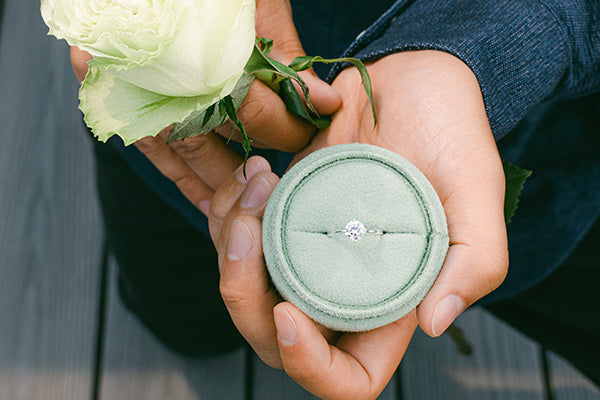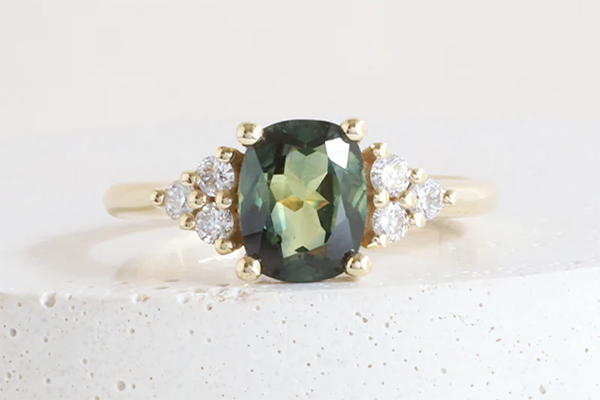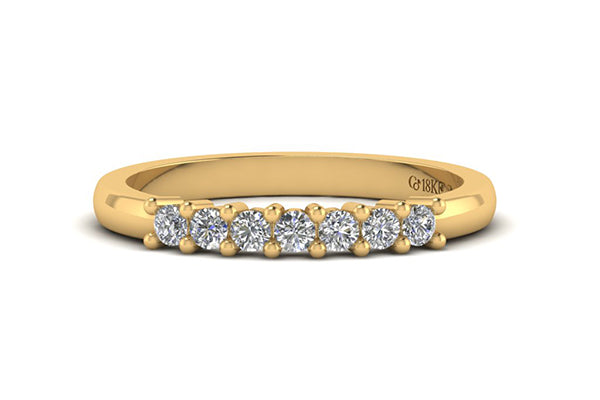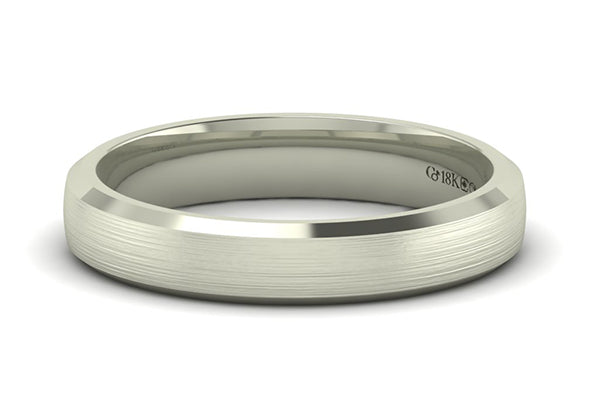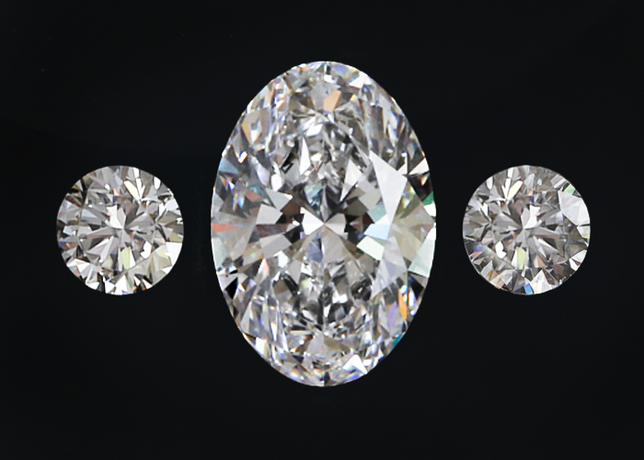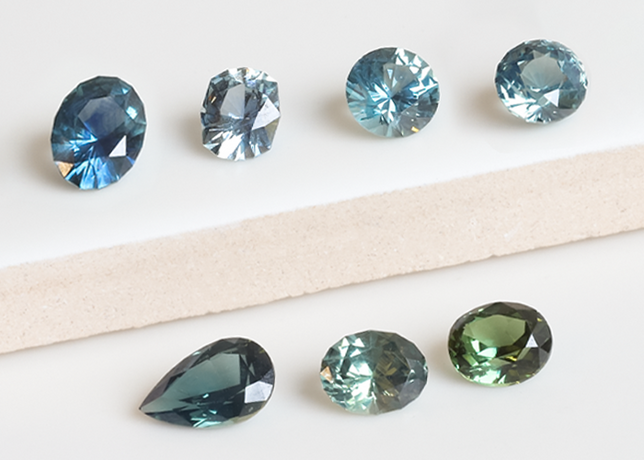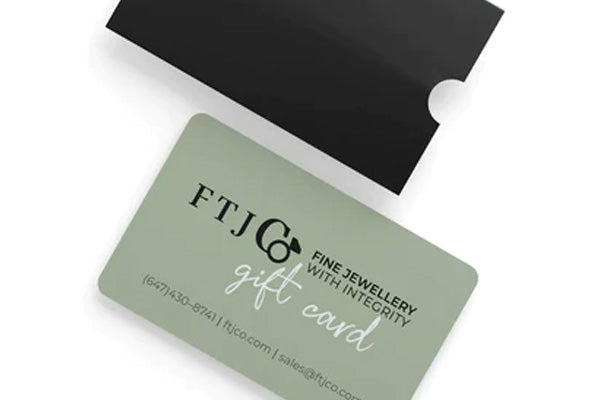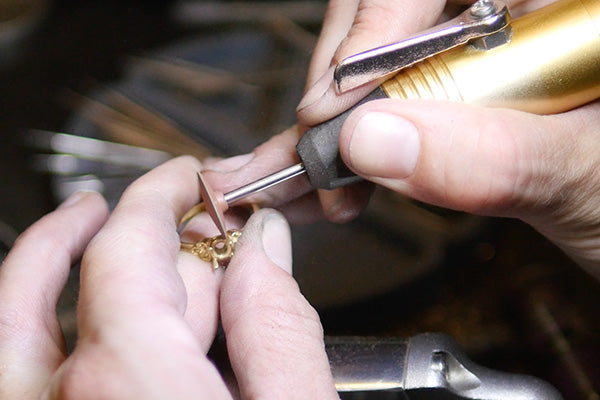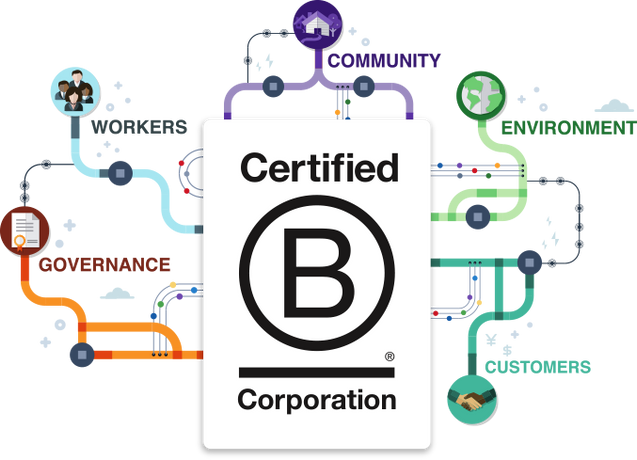Item FAQ - Metals
Why is Nickel-Free gold important?
Nickel is a cheap, base metal that up to 20% of the population reacts to. It's cumulative allergy, so the more exposure you get, the more chance that you may start reacting to it. There have also been reports of women suddenly reacting to their nickel-based gold ring after they have had their first child. So you may not react now, but you could later. And nickel is in a lot things you don't realise--even the rivets of your jeans--so having it in something you rarely or never take off is not the best idea, in our considered opinion. You can read more via a simple Google search.
We don't use any nickel-based gold. Our white gold uses the European standard which has palladium where North American gold uses nickel. Palladium is in the platinum group of metals and, except for people with extreme metal allergies, it causes no reaction. It also has the benefit of not requiring rhodium plating which is another characteristic of nickel-based gold--everyone plates it to give it a bright white colour but this creates an unnecessary wear item.
What is Fairtrade and Fairmined Gold?
Our Fairtrade gold is certified by Fairtrade International (the same body that certifies other commodities such as coffee, cocoa and bananas). Our Fairmined gold is certified by the Alliance for Responsible Mining which maintains the Fairmined standard.
These certification bodies ensure that the communities that mine that gold have proper working conditions, health, safety and environmental practices. Since these are communities (and not corporations) their social betterment comes from the premiums we pay over the market price for the gold.
When you choose Fairtrade or Fairmined gold, your ring is laser marked with either the Fairtrade certification stamps (shown one in from the right) or the Fairmined stamp which is shown at the end on the right side. Your ring will be made with either Fairtrade or Fairmined metal, depending upon the metal colour chosen and current stocks.

These two standards and the principals that underlie them are really central to who we are as company. Everything that we do is animated by clients and communities and if you watch this video, you'll see how those two things become one.
What is Recycled Gold?
Our regular gold is recycled from old jewellery, electronics and other post-consumer gold which means it hasn't been mined and is a good environmental choice.
What’s the difference between white gold and platinum?
Platinum is more dense than white gold, so it feels heavier when you wear it. The colour is also different, with platinum being a cool white and our palladium based white gold, more of a warm white. But while it is stronger than gold (because of its density) it is, at the same time, softer than gold which means it will scuff more easily over time. So a platinum ring will develop a patina over time and many people find this charming. Platinum is also rare and difficult to work with and so it is also a more expensive option than gold for both these reasons.
Why is 18K better than 14K gold?
18K gold has long been considered the optimum karat for gold because it affords durability while also not 'watering down' those characteristics that make gold a beautiful material to work in. 18K gold is 75% pure whereas 14K is only 58% pure and that greater purity means that the 18K will always take a polish better than 14K and is more easily worked than 14K. In short, you can create better designed and better-finished jewellery in 18K which is why it is the standard for fine jewellery. In addition, within the jewellery industry, 14K is considered mass-market; most 14K jewellery is generally designed to be manufactured in quantity and mass-finished by machines rather than finished by hand.
Some people argue that 14K is more durable than 18K but the reality is that your finger is a lot more delicate than either type of gold so we think that any differences between the two karats' durability is moot.
 Solitaire
Solitaire
 Solitaire with Pavé
Solitaire with Pavé
 Bezel Set
Bezel Set
 Halo
Halo
 Multistone
Multistone
 Unique
Unique
 Nature Inspired
Nature Inspired
 Everyday
Everyday
 Wider Band
Wider Band
